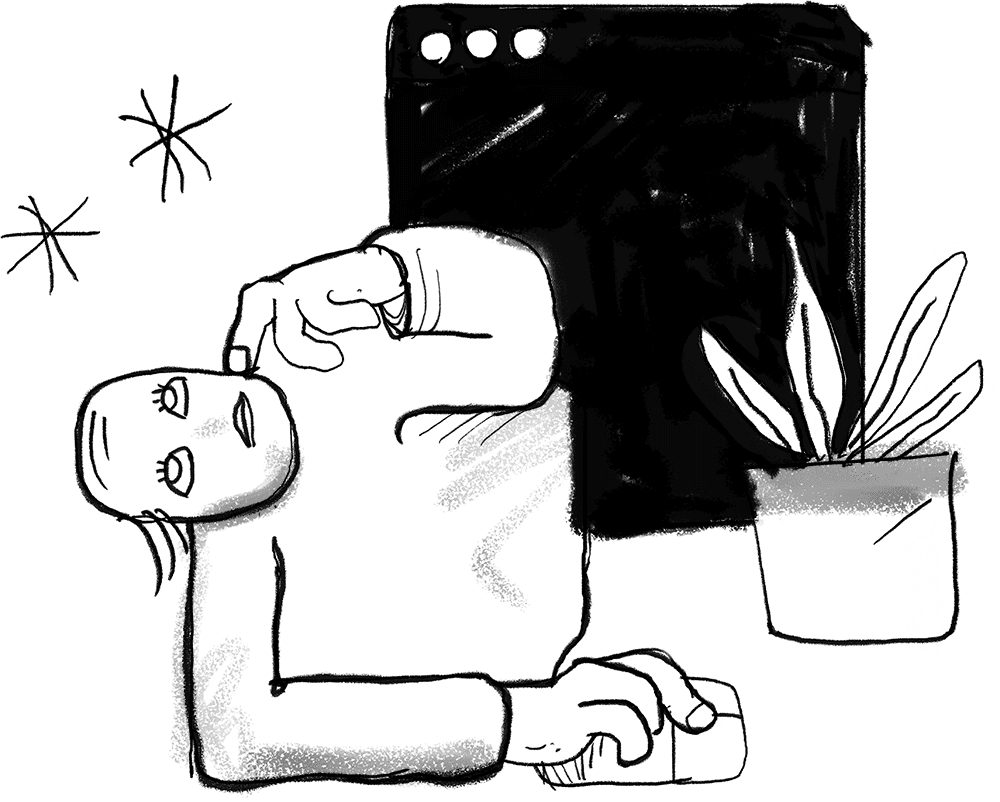Crisis situations in mental health practice require focused clinical intervention and often extend beyond standard session timeframes. For clinicians providing these critical services, understanding how to properly bill for extended crisis psychotherapy is essential.
Proper billing for extended crisis psychotherapy services requires knowledge of specific CPT codes, documentation requirements, and insurance guidelines. Mastering these aspects is not just about securing appropriate reimbursement—it's about ensuring the financial sustainability of your practice while providing vital care to patients experiencing severe psychological distress.
This comprehensive guide focuses on CPT code 90840, a crucial billing code for mental health professionals who deliver extended crisis care.
What is CPT Code 90840?
The 90840 CPT code is an add-on code specifically designed for additional 30 minutes of psychotherapy for crisis beyond the initial crisis intervention (CPT Code 90839).
According to the American Medical Association's CPT manual, this code allows mental health professionals to bill for extended crisis services when a patient experiencing a crisis state requires more than the initial 30-74 minutes of crisis intervention.
Key Characteristics:
- It is always an add-on code that must be used in conjunction with psychotherapy for crisis first 60 minutes (90839)
- Listed separately in addition to the primary procedure code
- Covers each additional 30 minutes of crisis psychotherapy beyond the initial 74 minutes
- Can be billed multiple times if the session extends significantly [for e.g, 135 minutes total = 90839 (first 60 mins) + 90840 (mins 75–104) + 90840 (mins 105–134)]
- Requires the crisis state to be life-threatening or complex problems requiring immediate attention
- Cannot be used with standard psychotherapy codes like individual psychotherapy (90832, 90834, 90837)
What It Does NOT Cover:
- Cannot be billed as a standalone code
- Does not apply to routine therapy that runs long
- Does not include family therapy time unless directly related to patient stabilization
- Cannot be used for routine follow-up appointments
- Is not interchangeable with interactive complexity code (90785)
Who Can Use CPT Code 90840?
The following licensed mental health professionals can typically bill using the 90840 CPT code for crisis sessions:
- Psychiatrists
- Clinical psychologists
- Licensed Clinical Social Workers (LCSWs)
- Licensed Professional Counselors (LPCs)
- Family therapist (LMFTs)
- Psychiatric Nurse Practitioners
- Clinical Nurse Specialists with appropriate mental health credentials
- Social workers with appropriate licensure
- Other providers as specified by Medicare coverage guidelines
Important Note: Always verify your state-specific regulations and individual payer requirements, as some insurance plans may have restrictions on which providers can bill for crisis services.
Session Length and Time Requirements
Proper tracking of time spent is essential for correctly billing crisis codes, particularly the 90840 CPT code:
- The add-on code 90840 can only be used after a minimum of 74 minutes of crisis psychotherapy has been provided (billed as psychotherapy for crisis first 60 minutes, 90839)
- Each unit of 90840 covers an additional 30 minutes of crisis psychotherapy beyond crisis first 60 minutes
- For crisis psychotherapy sessions lasting 75-104 minutes: Bill 90839 + one unit of 90840
- For crisis sessions lasting 105-134 minutes: Bill 90839 + two units of 90840
- Additional units can be added for every 30-minute increment based on services provided
- Document exact start and end times of the entire crisis intervention, as time-based billing is scrutinized

Documentation Requirements
Thorough documentation is crucial for supporting medical necessity when billing with the 90840 CPT code. Your clinical notes should include:
- Confirm this is a continuation of a prior 90839 session. Clearly reference the original session.
- Record the exact start and end times of the entire crisis session.
- Mention the total time spent providing crisis services.
- Document a mental status exam, urgent clinical assessment, and history that justify the need for extended intervention. Be specific about the severity of symptoms such as disabling anxiety or overwhelming psychological distress and explain why care beyond 74 minutes was medically necessary.
- Describe the interventions you used. Include details on how you worked to stabilize the crisis whether that’s through therapy, safety planning, or mobilizing additional support.
- Note how the patient responded to the extended care.
- End with a clear disposition and safety plan. This should include updated risk assessments, follow-up plans, any referrals made, and communications with other providers or support persons.
Example documentation snippet:
"Crisis intervention extended beyond initial 74 minutes (4:00pm-5:14pm) with additional 30 minutes (5:14pm-5:44pm) due to patient's continued acute suicidal ideation with specific plan and intent. Mental status exam revealed severe anxiety and impaired judgment. Extended time was necessary to establish safety plan, contact support persons, and arrange for immediate psychiatric evaluation. Psychotherapy mobilizing resources was implemented to defuse the crisis state performing grounding techniques."
Pro Tip: AI therapy note tools like Supanote can help streamline your documentation process for crisis sessions, ensuring you capture all the necessary elements for compliant billing while focusing on providing critical care to your patients experiencing high distress.
Supanote's crisis note templates can guide you through the documentation requirements for extended crisis interventions, including mental status documentation and history of a crisis.
Modifiers and Their Use
Certain modifiers may be appropriate when billing the 90840 add on code according to the American Medical Association guidelines:
- Modifier 95 or GT - For telehealth crisis services when billing crisis codes (check payer requirements)
- Modifier 25 - When provided on the same day as an E/M service
- Modifier 59 - To indicate a distinct procedural service (rarely used with 90840)
- Modifier 76 - When repeat services are provided on the same day
- Modifier 52 - For reduced services (not typically used with psychotherapy for crisis services)
- Interactive complexity - The interactive complexity code (90785) cannot be used with crisis codes
Important: Always check with specific payers for their modifier requirements, as Medicare and other insurers may have unique rules for billing crisis codes.
Frequency of Billing
The frequency at which you can bill the 90840 CPT code is primarily determined by medical necessity and the guidelines in the CPT manual:
- Can be used multiple times in a single crisis psychotherapy session (for each additional 30 minutes)
- Generally no set limit on the frequency, but must be justified by the patient's diagnosis and clinical condition
- Some payers may have restrictions on how frequently crisis codes can be used for a single patient
- Medicare coverage and some private insurers may scrutinize repeated use of crisis codes
- Billing crisis codes too frequently may raise questions about whether the services provided are true crisis interventions
Best Practice: Always verify specific payer policies regarding frequency limitations. Excessive use of psychotherapy for crisis services without clear medical necessity may trigger audits.
Reimbursement Rates/Considerations
Reimbursement for the 90840 CPT code varies based on several factors according to the fee schedule:
- Medicare reimbursement for crisis codes typically ranges between $69.35 and $99.95 per additional 30 minutes (For 2025, the national average Medicare reimbursement rate is approximately $78.64)
- Private insurance rates vary significantly, often paying at a similar rate (100-150%) to Medicare
- Geographical location impacts reimbursement (higher in metropolitan areas)
- Provider type may affect reimbursement rates (psychiatrists often receive higher rates than social workers)
- Insurance plans may reimburse at different rates for mental health services compared to other medical services
Critical: Always consult with individual insurance companies for current rates specific to your provider type and location. Consider creating a spreadsheet to track psychotherapy services reimbursement rates by payer.
Telehealth Considerations
Crisis intervention and crisis psychotherapy, including extended sessions billed with the 90840 crisis code, can often be provided via telehealth:
- Use Place of Service code 02 for telehealth services
- Add Modifier 95 or GT based on payer requirements for psychotherapy codes
- Document that the service was provided via telehealth in your mental status notes
- Ensure the telehealth platform is HIPAA-compliant
- Verify coverage with each payer, as some may not reimburse for telehealth crisis services
- Document the patient's location during the crisis telehealth session
- Have emergency contacts and resources ready for the patient's location to help manage anxiety and high distress remotely
- Document how you assessed the presenting problem via telehealth
Note: Some payers, including Medicare, may require synchronous audio-visual communication for crisis services, not just audio-only.
Comparison with Related CPT Codes
Understanding the differences between crisis codes and standard psychotherapy codes in the CPT manual is essential:
CPT Code | Code Description | Key Differences from 90840 |
|---|---|---|
90839 | Psychotherapy for crisis first 60 minutes (30–74 minutes) | Primary code (90840 must be used with it); covers initial crisis period |
90837 | Individual psychotherapy, 60 minutes | Standard CPT code for routine therapy; not for crisis situations; cannot be used with 90840 |
90834 | Individual psychotherapy, 45 minutes | For routine therapy; shorter duration; not for crisis situations |
90832 | Individual psychotherapy, 30 minutes | For routine therapy; shortest duration; not for crisis situations |
90833 | Psychotherapy, 30 min with E/M | Add-on for medication management; not for crisis situations |
90785 | Interactive complexity add-on | Cannot be used with crisis codes; different purpose than 90840 |
99354 | Prolonged service, first hour | Not typically used for psychotherapy services; for other medical services |
Key Distinction: Use 90839 + 90840 when there is a life-threatening or complex problems requiring immediate attention for patients in high distress, not just a lengthy standard therapy session.
Best Practices and Common Pitfalls
Best Practices:
- Document start and end times precisely for the entire crisis intervention and time spent
- Clearly establish medical necessity for the extended crisis psychotherapy session
- Verify insurance coverage before billing crisis codes when possible
- Bill the primary code 90839 (psychotherapy for crisis first), followed by appropriate units of 90840
- Keep separate documentation for crisis sessions versus routine psychotherapy services
- Track time meticulously throughout the crisis psychotherapy session
- Schedule prompt follow-up after crisis intervention to prevent future crises
- Complete a thorough mental status exam during urgent assessment
- Document how you helped restore safety for the patient
Common Pitfalls to Avoid:
- Billing 90840 without 90839 (always must be billed together as the add on code requires the primary procedure)
- Using crisis codes for routine therapy that simply runs long without a true crisis state
- Failing to document exact timeframes for the extended session with patients
- Including family discussion time that isn't directly related to patient stabilization
- Not clearly documenting the life-threatening or complex nature of the presenting problem
- Overusing crisis codes for the same patient without clear medical necessity
- Neglecting to verify payer-specific requirements for billing crisis codes
- Failing to properly document anxiety or other symptoms justifying crisis treatment
Billing Examples
Example 1: Standard Extended Crisis Session
A patient presents with acute suicidal ideation with a specific plan and means. The crisis intervention begins at 3:00 PM and ends at 4:45 PM (105 minutes total).
- Billing: 90839 (psychotherapy for crisis first 60 minutes) + 90840 (additional 30 minutes)
- ICD-10: F32.3 (Major depressive disorder, severe with psychotic features)
- Documentation must include: Urgent assessment and history of a crisis state, mental status exam, specific interventions to restore safety, exact start/end times, and medical necessity for extended session
Example 2: Lengthy Crisis Requiring Multiple Extensions
A patient experiencing acute psychosis with dangerous behavior requires extensive crisis intervention lasting from 10:00 AM to 12:20 PM (140 minutes).
- Billing: 90839 (crisis first 60 minutes) + 90840 (minutes 75-104) + 90840 (minutes 105-134) + 90840 (minutes 135-140, rounded to 30 minutes per Medicare guidelines)
- ICD-10: F23 (Brief psychotic disorder)
- Documentation must include: Multiple time stamps showing continued medical necessity throughout the extended intervention, comprehensive mental status, and psychotherapy mobilizing resources
Example 3: Telehealth Crisis Intervention
A patient with overwhelming psychological symptoms and disabling anxiety reports active self-harm during a scheduled telehealth session, requiring extended crisis psychotherapy lasting 95 minutes.
- Billing: 90839-95 + 90840-95 (with Place of Service 02)
- ICD-10: F60.3 (Borderline personality disorder)
- Documentation must include: Telehealth platform used, patient's location, safety plan implementation to prevent psychological trauma, and local emergency resources contacted
Make documentation less chaotic with AI
Crisis sessions are intense, and when they run past 74 minutes, billing with 90840 means your notes need to be just as detailed as your intervention. But, let’s be real: after managing a full-blown crisis, the last thing you want is to write a novel.
That’s where tools like Supanote come in.
It helps you auto-generate progress notes that meet insurance requirements including time stamps, mental status exam (MSE) and other interventions that justify extended billing. Whether it’s a solo session or involves multiple people, Supanote can track who said what and pull it all into a clean, compliant note.
Some of the benefits for using AI for group therapy documentation are:
- Tracks exact time for 90839 + 90840 billing
- Captures critical details while you focus on the client
- Recognizes multiple voices in complex sessions
- Comes loaded with templates like SOAP, DAP, GIRP, BIRP & more
With the advancement of technology, many mental health professionals are turning to AI Therapy Note tools like Supanote to automate their documentation. These tools automate the creation of progress notes, reducing the time spent on paperwork and allowing more focus on patient care. Here's a detailed guide to AI Therapy Note tools and how they work.
Ready to try? 10 notes on us!
Login to your Supanote account and instantly access 10 free notes
Try Supanote for Free Now!
Frequently Asked Questions (FAQ)
Q: Can I bill 90840 CPT code without first billing 90839?
A: No, 90840 is an add-on code for crisis psychotherapy and can only be used in conjunction with 90839 as the primary procedure.
Q: How many units of 90840 can I bill for a single crisis psychotherapy session?
A: You can bill multiple units based on additional 30-minute increments, as long as medical necessity and crisis state performing is documented.
Q: Does insurance require pre-authorization for crisis codes like 90840?
A: Generally no, due to the urgent assessment nature of crisis services, but some plans may have specific requirements. Check your fee schedule.
Q: Can I use 90840 for a psychotherapy session that simply runs longer than expected?
A: No, these crisis codes are only for life-threatening or complex crisis situations requiring immediate attention for patients with overwhelming psychological symptoms.
Q: How do I document time spent for discontinuous crisis intervention?
A: Document each segment separately with start/end times, but bill based on total time spent on the same date per American Medical Association guidelines.
Q: Will Medicare coverage include reimbursement for 90840?
A: Medicare reimbursement does cover 90840, but has strict documentation requirements and sometimes lower rates than other psychotherapy codes.
Q:Can I bill crisis codes for telehealth sessions?
A: Yes, but use the appropriate telehealth modifier (95 or GT) and verify payer coverage for mental health services provided remotely.
Q:How do I determine if a situation qualifies as a crisis?
A: The presenting problem must involve life-threatening circumstances or complex problems requiring immediate attention to a patient in high distress with severe anxiety or other acute symptoms.
Q:If a crisis extends past midnight, how do I bill?
A: Bill services based on the calendar day, with separate psychotherapy for crisis first codes (90839) for each day if applicable.
Q:Can multiple providers like social workers, clinical psychologists, or psychiatrists bill crisis codes for the same patient on the same day?
A: Generally no, most payers will only reimburse one provider for crisis services per patient per day.
Conclusion
Mastering the 90840 CPT code is essential for mental health professionals who provide extended crisis psychotherapy services. By understanding the proper application, documentation requirements, and billing procedures for this crisis code, you can ensure fair compensation for the critical treatment you provide while maintaining compliance with insurance regulations and American Medical Association guidelines.
Remember that while billing crisis codes accurately is important for practice sustainability, your primary focus remains on providing quality care to patients experiencing high distress, disabling anxiety, and other overwhelming psychological symptoms. Always consult with payers or billing specialists when in doubt about specific requirements for Medicare reimbursement or other code guidelines, and consider using documentation tools like Supanote to streamline the administrative aspects of crisis intervention, mental status documentation, and urgent assessment.
By implementing the best practices outlined in this guide, you'll be better equipped to navigate the complexities of crisis psychotherapy billing while continuing to provide life-saving interventions to those in need. Proper use of psychotherapy for crisis services codes like 90839 and the additional 30 minutes add-on code 90840 ensures that mental health professionals including social workers, clinical psychologists, and other providers can sustainably deliver critical care to their patients during their most vulnerable moments.
